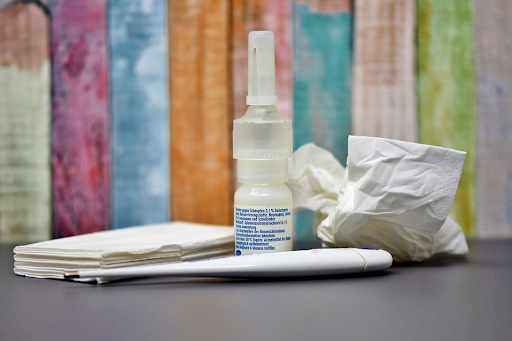
Have you ever wondered what goes into bringing a new nasal spray to the pharmacy shelves? The Food and Drug Administration (FDA) is responsible for ensuring that medicines, including all nasal sprays, are safe and effective. Manufacturing companies have strict guidelines to follow to have their products approved by the FDA.
In this blog post, we’ll explore the different stages of the process required for manufacturers to do business with the FDA. From pre-market application requirements to inspection regulations, we will investigate how the FDA helps protect consumers from consuming potentially dangerous products. Let’s dive in!
Overview of the FDA’s Role in Regulating Manufacturers of Nasal Sprays
Have you ever wondered who regulates the manufacturers of nasal sprays? Well, wonder no more! The Food and Drug Administration (FDA) is responsible for ensuring the safety, efficacy, and quality of medical products, including nasal sprays.
The FDA regulates manufacturers to ensure that the nasal sprays they produce are safe for patients to use and that they do what they claim to do. They also inspect nasal spray manufacturing facilities, review test results, and monitor adverse reactions patients report.
Thanks to the FDA’s active role in regulating manufacturers of nasal sprays, we can feel more confident in using these products to help us relieve stuffy noses and other nasal-related ailments.
Exploring the process of drug approval from manufacturers to consumers
When a new drug hits the market, it’s easy to forget about the long and rigorous journey it took to get there. The drug approval process involves multiple stages, from initial testing in the lab to clinical trials on real patients.
Before it can be sold to consumers, a drug must be proven safe and effective through extensive scrutiny by regulatory agencies such as the FDA. The manufacturer must also provide thorough documentation and labeling to ensure that doctors and patients alike understand how to use the drug correctly.
It’s a complex process that ultimately ensures the safety and efficacy of the medications we rely on daily.
Examining the regulations and laws that govern drug safety standards
When it comes to drug safety, many regulations and laws are in place to protect the public. One such law is the Food and Drug Administration’s (FDA) approval process, which requires extensive testing and clinical trials before a drug can be deemed safe for consumption. Additionally, the FDA requires drug manufacturers to continuously monitor the safety and effectiveness of their products once they are on the market. It’s important to note that drug safety standards are ever-evolving, with new regulations being put into place as technology and research capabilities advance. It’s crucial for both the government and the private sector to work together to ensure that drug safety remains a top priority for both patients and healthcare professionals.
Examining potential risks associated with certain nasal sprays
Nasal sprays are a popular over-the-counter remedy for symptoms such as congestion and allergies. However, it’s important to be aware that certain nasal sprays can pose potential risks. Some sprays contain ingredients like oxymetazoline, which can cause rebound congestion if used for too long or too frequently.
Additionally, steroid-based nasal sprays can lead to issues like nosebleeds and an increased risk of infections. It’s important to always read the labels and instructions carefully before using any nasal spray and to talk to a healthcare provider if you have any concerns or questions about the risks associated with these products.
Investigating how the FDA ensures that each product is effective and safe for use
Have you ever wondered how the FDA ensures that your products are effective and safe? The FDA has a rigorous process to ensure that products meet their strict standards before they hit the shelves. Companies must conduct extensive testing and research on their products, which involves clinical trials and laboratory testing.
The FDA reviews this data to determine if the product is safe and effective for its intended use. Additionally, the FDA monitors products even after they are on the market to ensure they meet safety and efficacy standards. So the next time you reach for a product, you can feel confident knowing that the FDA is working hard to keep you safe.
Looking at ways consumers can stay informed about the safety of their nasal spray products
Using nasal spray products is a common way to alleviate symptoms of colds, allergies, and other respiratory issues. However, it’s important to stay informed about the safety of these products, especially since they go directly into our nasal passages.
One way to do this is by regularly checking for updates and news from reputable sources, such as the FDA or the product manufacturer. It’s also a good idea to read and follow the instructions on the packaging carefully, and to speak with a healthcare professional if you have any concerns or questions.
By staying informed and taking necessary precautions, you can feel confident in using nasal spray products to help manage your symptoms.

The FDA plays a vital role in protecting consumers of nasal sprays and other medical products. They are responsible for keeping these products safe and effective at all times. Manufacturers must undergo a rigorous process to ensure their drug is approved for public use. In addition, the agency imposes stringent regulations to ensure that these drugs maintain their safety standards throughout their lifecycle.
Consumers have the power to stay informed with the help of an ever-expanding array of resources available to them. Through monitoring updates from manufacturers, understanding product labels, and researching safety concerns, consumers can be sure that they are taking safe and effective products.
Though there may always be controversy about the efficacy of certain drugs, following FDA regulations can provide you with peace of mind when selecting your nasal spray products.
You may be interested in: What is the recommended temperature for your commercial refrigerator?

